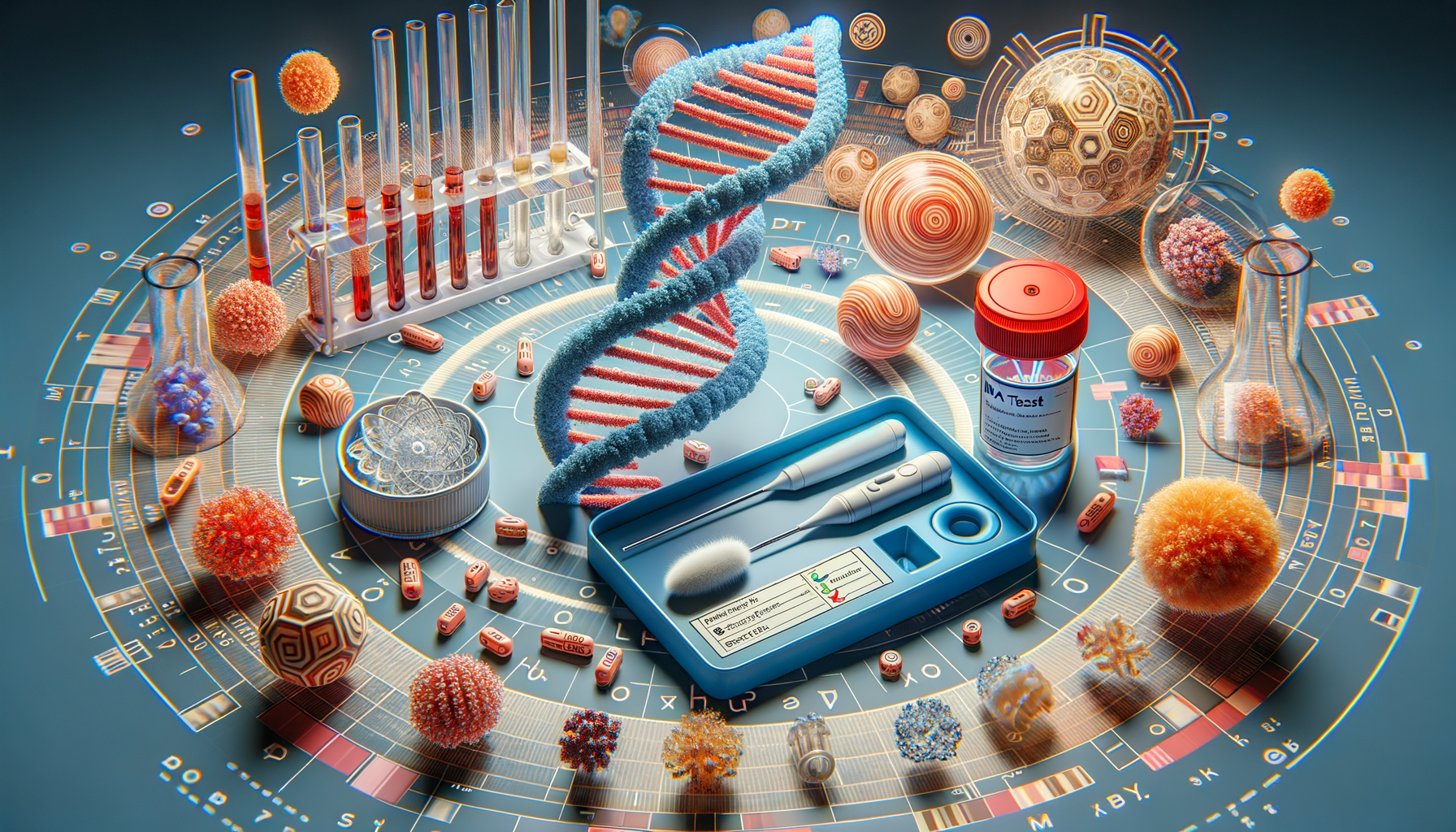The Fascinating World of DNA Testing
DNA testing has become a cornerstone in the exploration of genetic information, offering insights that were once considered the realm of science fiction. This powerful tool allows individuals to uncover their ancestry, understand genetic predispositions to certain health conditions, and even connect with long-lost relatives. The significance of DNA testing in today’s world cannot be overstated, as it bridges the gap between past and present, offering a deeper understanding of one’s personal heritage and health.
In recent years, the popularity of DNA testing has surged, driven by advances in technology and the increasing accessibility of genetic testing services. These tests analyze an individual’s genetic code, which is composed of sequences of DNA that carry the instructions for building and maintaining an organism. By examining these sequences, geneticists can identify variations that may influence traits or predispose individuals to certain health conditions.
DNA testing is not only about discovering one’s roots but also about taking proactive steps towards better health. Many people are now using DNA tests to gain insights into their genetic predispositions, which can inform lifestyle choices and medical decisions. This intersection of ancestry and health makes DNA testing a valuable tool for those seeking a comprehensive understanding of their genetic makeup.
Genetic Testing Online: A New Era of Accessibility
The advent of online genetic testing has revolutionized the way individuals can access and utilize genetic information. This approach allows people to order DNA tests from the comfort of their homes, providing a convenient and often more affordable option compared to traditional testing methods. Online genetic testing services offer a variety of tests, ranging from ancestry analysis to health screenings, making it easier than ever for individuals to explore their genetic information.
One of the key benefits of online genetic testing is the ability to receive results quickly and efficiently. After ordering a test kit online, users typically collect a DNA sample through a simple saliva swab, which is then sent back to the company for analysis. The results are usually available within a few weeks, providing users with detailed reports that can be accessed online. This streamlined process has made genetic testing more accessible to a wider audience, empowering individuals to take control of their genetic information.
However, it’s important to approach online genetic testing with a critical eye. While these services offer valuable insights, the accuracy and reliability of the results can vary. It’s crucial for users to research the testing company and understand the limitations of the tests offered. Additionally, privacy concerns should be taken into account, as genetic data is sensitive information that requires careful handling and protection.
Home Genetic Testing: Convenience Meets Personal Discovery
Home genetic testing kits have become a popular option for those looking to explore their genetic heritage and health from the comfort of their own homes. These kits offer a user-friendly experience, allowing individuals to collect DNA samples easily and receive detailed reports on their genetic makeup. The convenience of home genetic testing has made it an attractive choice for many, providing a gateway to personal discovery and health insights.
The process of home genetic testing is straightforward. After purchasing a kit, users follow the instructions to collect a DNA sample, usually through a cheek swab or saliva collection. The sample is then sent to a laboratory for analysis, where advanced technology is used to decode the genetic information. Within a few weeks, users receive a comprehensive report detailing their ancestry, potential health risks, and even traits such as eye color or taste preferences.
While home genetic testing offers numerous benefits, it’s essential to be aware of its limitations. Not all tests are created equal, and the accuracy of results can vary depending on the technology and databases used by the testing company. Furthermore, interpreting genetic information can be complex, and it’s advisable to consult with healthcare professionals when making decisions based on test results. Despite these challenges, home genetic testing continues to be a valuable tool for those seeking to understand their genetic blueprint.
Ethical Considerations in DNA and Genetic Testing
As DNA and genetic testing become more prevalent, ethical considerations are increasingly coming to the forefront. The accessibility of genetic information raises questions about privacy, consent, and the potential misuse of data. These concerns highlight the need for robust ethical guidelines and regulations to ensure that genetic testing is conducted responsibly and ethically.
One of the primary ethical concerns is the privacy of genetic data. DNA contains sensitive information that can reveal personal details about an individual’s health, ancestry, and even familial relationships. Ensuring the confidentiality and security of this data is paramount, as unauthorized access or misuse could have significant implications for individuals and their families.
Consent is another critical issue in genetic testing. Individuals must be fully informed about the implications of undergoing a DNA test and the potential outcomes. This includes understanding the limitations of the test, the accuracy of the results, and the possible impact on their health and well-being. Informed consent is essential to protect individuals’ autonomy and ensure that they are making decisions based on accurate information.
Finally, the potential for discrimination based on genetic information is a concern that must be addressed. There is a risk that genetic data could be used to discriminate against individuals in areas such as employment or insurance. To mitigate this risk, strong legal protections are necessary to prevent genetic discrimination and safeguard individuals’ rights.
The Future of DNA and Genetic Testing
The future of DNA and genetic testing holds exciting possibilities, driven by advances in technology and a growing understanding of the human genome. As research continues to evolve, the potential applications of genetic testing are expanding, offering new opportunities for personal and medical insights.
One area of development is the increasing precision of genetic testing. As technology improves, tests are becoming more accurate and comprehensive, allowing for a deeper understanding of genetic variations and their implications. This enhanced precision can lead to more personalized healthcare, where treatments and interventions are tailored to an individual’s unique genetic profile.
Another promising avenue is the integration of genetic testing with other forms of health data. By combining genetic information with data from wearable devices, electronic health records, and lifestyle factors, a more holistic view of an individual’s health can be achieved. This integrated approach has the potential to revolutionize healthcare, enabling proactive and preventive measures that improve overall well-being.
As the field of genetic testing continues to advance, it is essential to balance innovation with ethical considerations. Ensuring the responsible use of genetic information will be crucial in maximizing the benefits of DNA testing while minimizing potential risks. By navigating these challenges thoughtfully, the future of genetic testing can offer profound insights and opportunities for individuals and society as a whole.



Leave a Reply